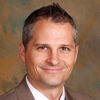By Morcel Hamidy and Chad Vercio, MD
At our medical school, we started a Designated Emphasis in Healthcare Leadership program. This 4-year student-run program is for students interested in leadership in health care. I am the CEO. Too often, I feel like this is a silly title that we call ourselves in our little club.
I reached out to my mentor and shared my insecurities about feeling qualified to lead this group of talented and ambitious students. I was looking to my mentor to support me by saying, “Yes, you are qualified.” Instead, I got, “Well, no offense, but you're probably not. Right?” Surprised, I paused. I wasn't offended. He continued, “You're not qualified because you weren't trained to do this. But you have the position, and now you have to own it.” These were some of the most freeing words of my life.
Few health care leaders have completed formal education on leadership; instead, they learn how to be leaders based on the situations they are thrown into. The hallmark of effective leaders is the acceptance of “the randomness and inevitability of being thrown” (1). In other words, what effective leaders do with the situation that they are thrown into determines their success or failure.
I was lucky enough to be thrown into this group of great thinkers in my first year and to learn from the leaders ahead of me how to make this program the best that it can be.
I am proud of my team. Our students introduced interventions at the student-run free clinic that have improved patient times and satisfaction, laid the groundwork to establish a Milk Bank in our county, and presented our projects at national conferences. It is not a silly club but rather a group of people who have the potential to make real change.
Our minds can be as wide or as limited as we let them be. If I believe I am not qualified, then my own paralysis and inaction will amount to failure and it becomes a self-fulfilling prophecy. If I accept that I'm not qualified but am capable, then the world becomes wide open. Lifting the limitations of my own mind, I am able to grow in ways that would not otherwise be possible.
As Wiley Souba states, “Once your challenge shows up for you as hittable and you show up for yourself as capable, the appropriate ways of being and acting that will ensure your effectiveness will intrinsically follow” (2).
I took a step back and saw that the same can be said about medicine as a whole. I don't feel qualified to put stitches into my patient's forehead because I've only ever practiced on a piece of rubber. I don't feel qualified to share difficult medical information with patients or their families. I don't feel qualified to be called doctor.
As for the last point, being called doctor would be illegal because I still have over a year of training left. However, I am learning that the practice of learning medicine means you lean into this discomfort and trust that the growth will come. I've learned it's important to not shy away from opportunities until we feel 100% ready because, truthfully, we may never feel that way. Any opportunity that we shy away from simply narrows the world in which we live.
When we are thrown into different situations, our openness to possibilities determines whether we will sink or swim. From this point on, I will always say yes to any opportunity that can help me get closer to being qualified to be called doctor.
References
- Souba W, Souba M. The thrown leader. Open Journal of Leadership. 2017;6:135-41. doi:10.4236/ojl.2017.64010
- Souba W. Hittability: the leader's edge [Editorial]. Acad Med. 2017;92:444-7. [PMID: 28351061] doi:10.1097/ACM.0000000000001
 Morcel Hamidy is a third-year medical student at UC Riverside School of Medicine.
Morcel Hamidy is a third-year medical student at UC Riverside School of Medicine.
 Chad Vercio is Chair of Pediatrics at Riverside University Health System and an Assistant Professor in Pediatrics and Internal Medicine at Loma Linda University School of Medicine.
Chad Vercio is Chair of Pediatrics at Riverside University Health System and an Assistant Professor in Pediatrics and Internal Medicine at Loma Linda University School of Medicine.
Back to the January 2022 issue of ACP IMpact

